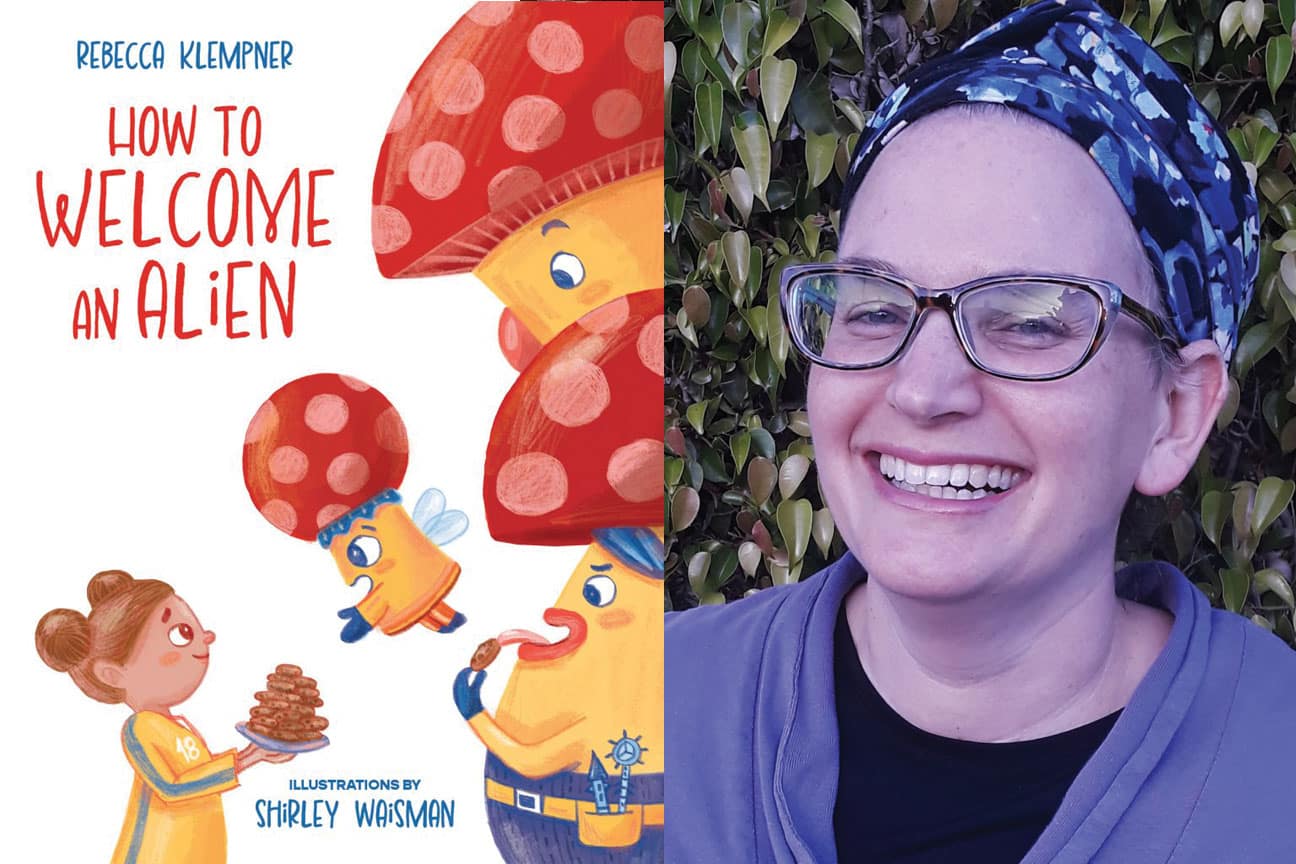
Avraham and Sarah lived in a tent that was open on all sides. Why? They wanted to communicate with the world that they were open to hosting guests and welcoming in everybody, even if they were strangers.
In the new picture book “How to Welcome an Alien” (Kalaniot Books), out on August 1, kids ages 4-7 can learn about the mitzvah of hachnasat orchim, of hosting guests, in a fun and whimsical way.
In the story, written by author Rebecca Klempner and illustrated by Shirley Waisman, a friendly alien family from outer space lands in the Abraham’s backyard (the family name is a nod, of course, to the Jewish patriarch). Dina, a child and the book’s main character, kindly welcomes the strange aliens into her home.
While Dina’s mom is a little skeptical, Dina reminds her: “It’s a mitzvah to give guests food and drink and a place to rest.” Dina and her parents give the aliens some food and drinks as well as a little time to settle down, and end up helping them repair their spaceship so they can get back home.
Klempner, who previously wrote three other children’s books, was inspired to write “How to Welcome an Alien” when she stumbled upon an interesting Hebrew translation.
“I noticed that ‘ger,’ the word used for ‘stranger,’ as in the mitzvah of welcoming a stranger, is occasionally translated as ‘alien,’ and my brain went wild with that,” she said.
“I noticed that ‘ger,’ the word used for ‘stranger,’ as in the mitzvah of welcoming a stranger, is occasionally translated as ‘alien,’ and my brain went wild with that.”
The author also decided she wanted to put out this book, “largely in response to anti-immigrant political messaging which pervaded media at the time I was writing it,” she said. “I became concerned, in particular, when I heard my fellow Jews make comments about immigrants, which seemed at odds [with] my understanding of Torah.”
When talking about the mitzvah of hachnassas orchim, Klempner brings up how Jews are supposed to be welcoming of all other kinds of “aliens,” including refugees, newcomers to the neighborhood and immigrants.
“My husband’s parents are both immigrants, and if others hadn’t welcomed them to this country, where would he be now?” she said. “In fact, three of his grandparents were already refugees before they reached their final homes. One was a political refugee on two separate occasions. According to the UNHCR, there were 32.5 million refugees last year, a higher number than at any point in history since the Second World War. This is not a problem we can relegate to the past.”
When Klempner first got married, she and her husband welcomed many different guests for Shabbat and holidays, not just for meals, but for overnight visits as well. When they had children, they cut back, and then continued to host family-only meals during COVID. However, post-COVID, they’re now welcoming people once again and hosting at least once a month.
“I enjoy hosting friends and family, but the mitzvah really becomes more meaningful when we invite people whose need for hospitality is greater, for example, they are visiting from out of town, they’ve been dealing with a family crisis that prevents them from preparing for Shabbat or a holiday or they aren’t someone who receives many invitations,” she said.
“How to Welcome an Alien” may have a silly premise, but on a deeper level, it teaches readers to always be hospitable and keep the tent open just like Abraham and Sarah did.
As Klempner said, “I want my young readers to view those around them, and themselves, with curiosity, kindness and the desire to give.”
Kylie Ora Lobell is the Community Editor of the Jewish Journal.








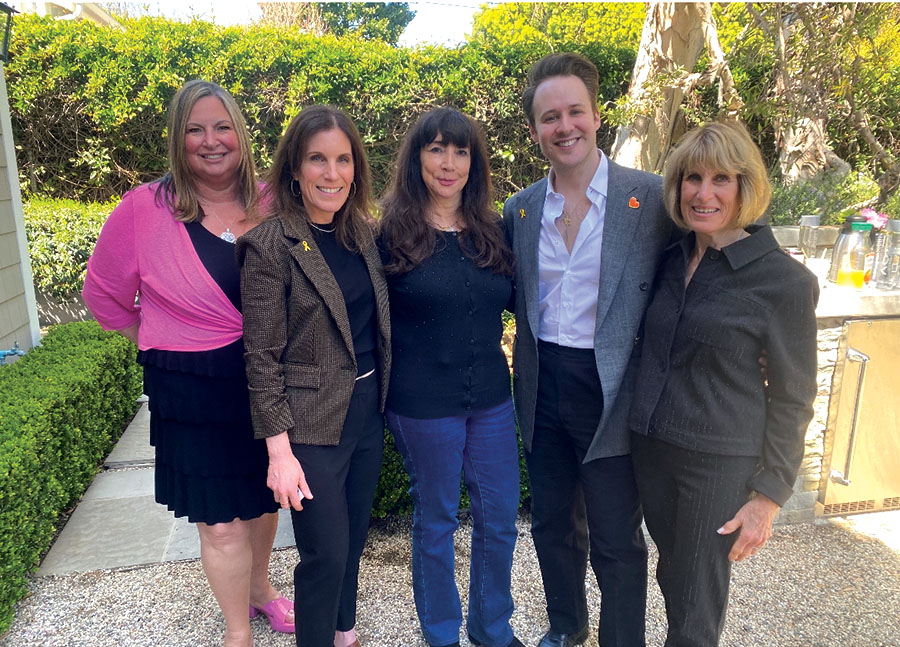


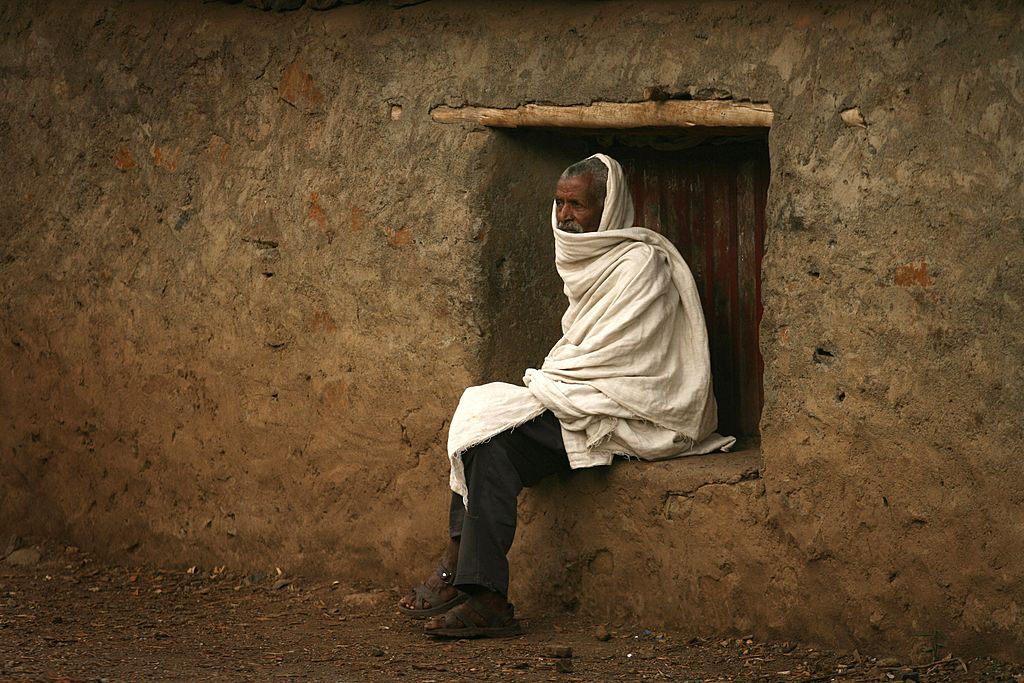


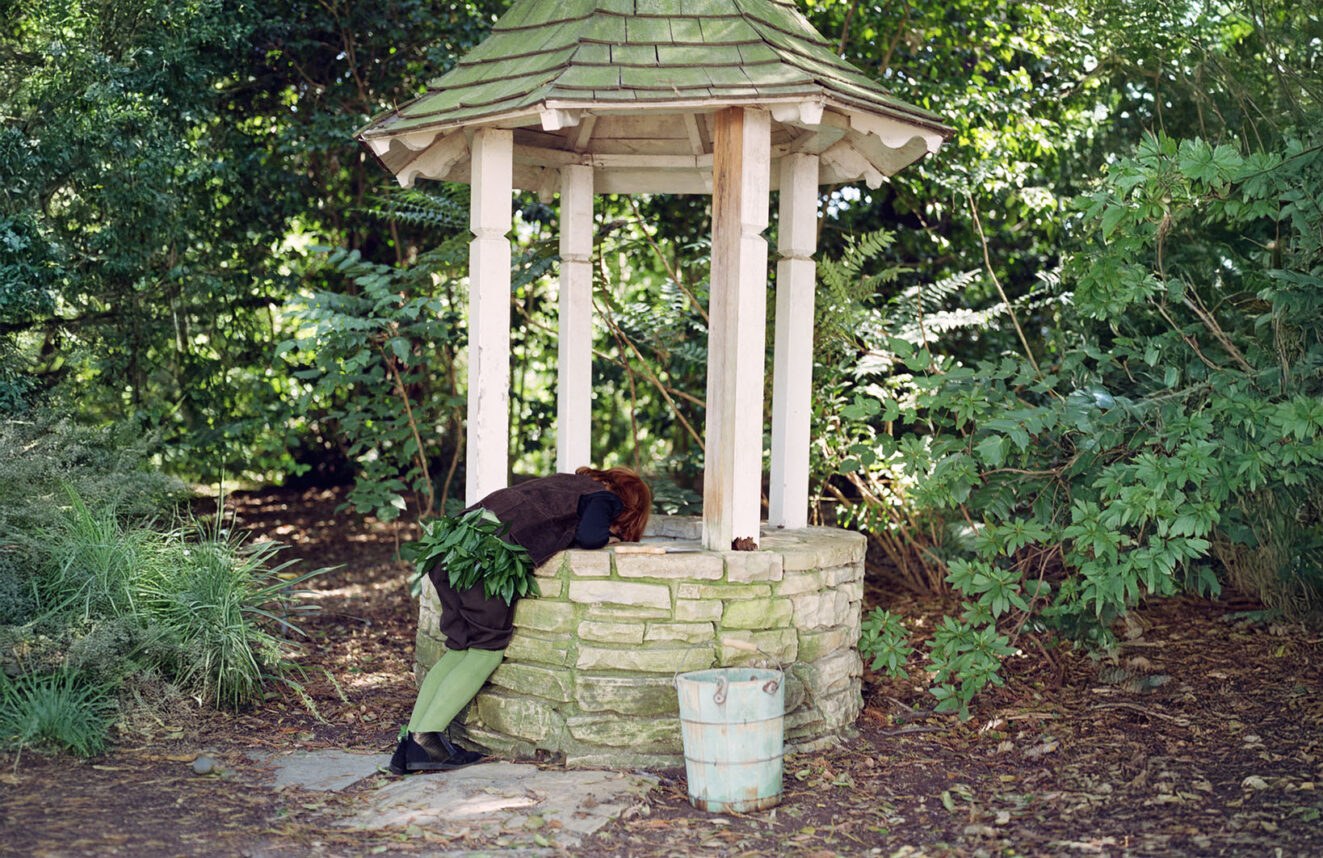




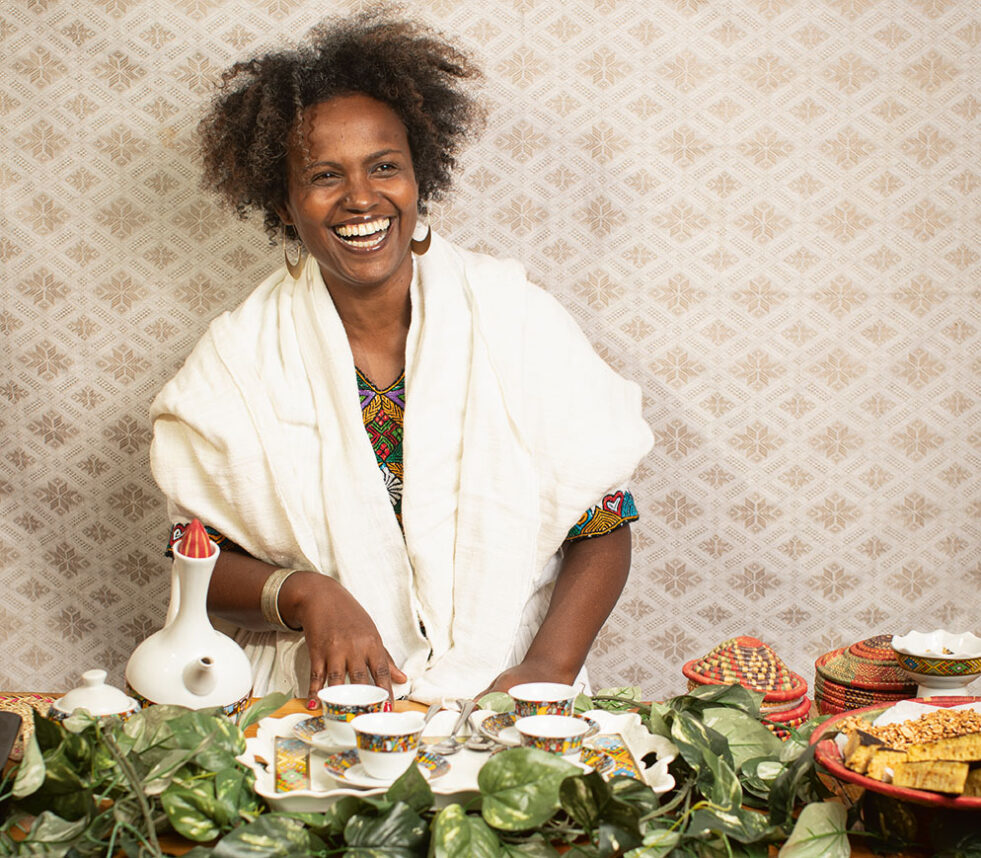


 More news and opinions than at a Shabbat dinner, right in your inbox.
More news and opinions than at a Shabbat dinner, right in your inbox.